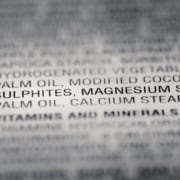Unhealthy Additives Are Transforming Gatorade
Consumers are now connecting their health to the food and beverages that they consume. PepsiCo, who owns Gatorade, is facing a backlash regarding the types of unhealthy additives used in making their signature drinks.
So what’s inside a 32-oz Gatorade? It contains 54.4 grams of sugar which are more than the recommended daily allowance of an average person. Although 50 grams of sugar provides energy for individuals who are always working out or on the go, an average person does not have a need for it.
 Sugar is the Silent Killer in Sports Drinks
Sugar is the Silent Killer in Sports Drinks
There are different types of sugar. In chemistry, sugar is categorized as sucrose, fructose, glucose, maltose, and lactose. They are carbohydrates that fuel the body by providing the energy that it needs to sustain daily activities. Many food experts believe that sugar is one of the unhealthy additives that we include in our diet. It is important to take note that there are different forms of sugars, but one of the dangerous types of sugar for our health is sucrose, also known as white sugar or table sugar. Sugar is made from plants, and they can come from sugar beets or sugar cane. The natural juices are extracted from both plants and are crystallized to form white sugar which is made up of 99% sucrose.
Sugar is not a low-calorie additive. In fact, it has a high glycemic index (GI) which is a measure of blood glucose response after eating a particular food. Since its GI is high, this means that your blood sugar level is immediately elevated just a few minutes after consuming a tablespoon of it.
The Fight Against Sugar & Unhealthy Additives
The ability of table sugar to raise the blood sugar level within a few minutes of ingesting it is the reason why people want to avoid Gatorade and other beverages. For this reason, beverage companies are now launching innovations to keep their customers not only happy but also healthy. Many beverage companies are now offering low-calorie drinks, but their marketing strategy does not end there. Many companies are now attempting to create natural drinks by cutting out synthetic ingredients from their beverage mixtures.
For instance, PepsiCo removed the brominated vegetable oil from Gatorade’s formula in addressing the call of a 15-year old activist who launched an online campaign against the unhealthy additive. Moreover, the company also developed a sports drink that does not have artificial coloring and is sweetened with natural cane sugar.
The new line of beverages looks promising, but consumers are seeking drinks that fit their nutritional needs. Sport drink companies are trying to capitalize on the opportunity by creating healthier drinks without sacrificing the taste. For instance, both PepsiCo and Coke are now investing in coconut water, Suja juice, and sparkling water after calls by nutritionists to switch from sports drinks to drinks with less sugar and unhealthy additives.
Today, beverage companies are not only looking into making low-calorie drinks, but they also want to deliver beverages that are healthy—to fit the lifestyles of its many health-conscious consumers.
Inspired by businessinsider.com
 Where are the Nutrients?
Where are the Nutrients?
How are we able to market a beverage as “sports nutrition” and there are ZERO nutrients in the drink? On the other hand, some of these “nutritious” drinks are using synthetic vitamins and minerals to fortify their products. How is that any better? We should be looking for ways to deliver whole food nutrients into beverages like Gatorade and Powerade.
NutriFusion® developed a patented method for stabilizing the nutrients in whole fruits and vegetables. We are here to help sports nutrition brands bring healthy, nutritious products to market. If you are interested in learning more, please visit the Beverages page below for more information.



